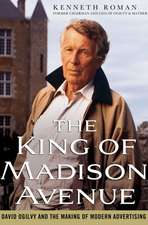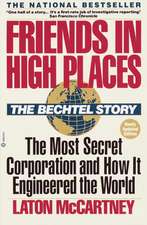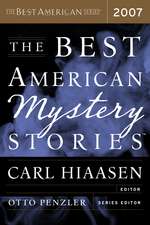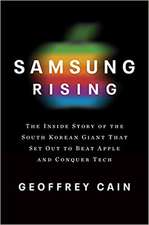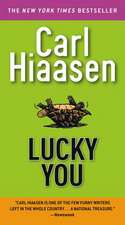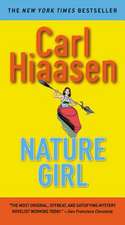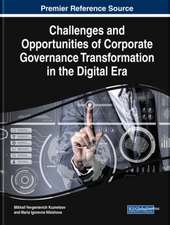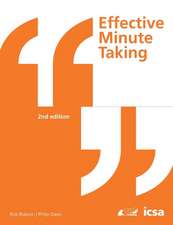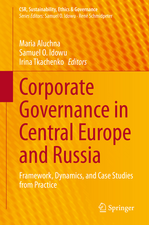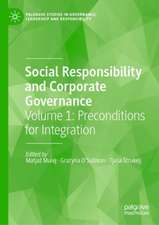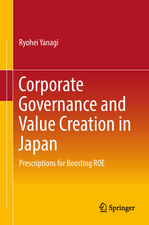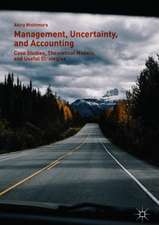Team Rodent: Library of Contemporary Thought
Autor Carl Hiaasenen Limba Engleză Paperback – 4 mai 1998
--from TEAM RODENT
TEAM RODENT
How Disney Devours America
"Revulsion is good. Revulsion is healthy. Each of us has limits, unarticulated boundaries of taste and tolerance, and sometimes we forget where they are. Peep Land is here to remind us; a fixed compass point by which we can govern our private behavior. Because being grossed out is essential to the human experience; without a perceived depravity, we'd have nothing against which to gauge the advance or decline of culture; our art, our music, our cinema, our books. Without sleaze, the yardstick shrinks at both ends. Team Rodent doesn't believe in sleaze, however, nor in old-fashioned revulsion. Square in the middle is where it wants us all to be, dependable consumers with predictable attitudes. The message, never stated but avuncularly implied, is that America's values ought to reflect those of the Walt Disney Company, and not the other way around."
Preț: 62.35 lei
Nou
Puncte Express: 94
Preț estimativ în valută:
11.93€ • 12.49$ • 9.87£
11.93€ • 12.49$ • 9.87£
Carte disponibilă
Livrare economică 17-31 martie
Livrare express 01-07 martie pentru 14.84 lei
Preluare comenzi: 021 569.72.76
Specificații
ISBN-13: 9780345422804
ISBN-10: 0345422805
Pagini: 96
Dimensiuni: 141 x 209 x 7 mm
Greutate: 0.12 kg
Editura: BALLANTINE BOOKS
Seria Library of Contemporary Thought
ISBN-10: 0345422805
Pagini: 96
Dimensiuni: 141 x 209 x 7 mm
Greutate: 0.12 kg
Editura: BALLANTINE BOOKS
Seria Library of Contemporary Thought
Notă biografică
Carl Hiaasen was born and raised in South Florida and presently lives in Tavernier, smack in the middle of the Florida Keys. He is currently Metro columnist for the Miami Herald, where his award-winning columns on rapacious development, egregious business practices, and corrupt politicians have helped clarify issues for the Florida citizenry. Hiaasen turned his hand to fiction in the early eighties. His first novel, Tourist Season, was published in 1986 and named "one of the ten best destination reads of all time by GQ magazine. He is the author of six other bestselling novels, Double Whammy, Skin Tight, Native Tongue, Strip Tease, Stormy Weather, and Lucky You.
Extras
Three decades after it began bulldozing the cow patures and draining the
marshes of rural Orlando, Disney stands as by far the most powerful
private entity in Florida; it goes where it wants, does what it wants,
gets
what it wants. It's our exalted mother teat, and you can hear the sucking
from Tallahassee all the way to Key West.
The worst damage isn't from the Walt Disney World Resort itself (which is
undeniably clean, well operated, and relatively safe) or even from the
tourists (although an annual stampede of forty million Griswolds cannot
help but cut an untidy swath). The absolute worst thing Disney did was to
change how people in Florida thought about money; nobody had ever dreamed
there could be so much. Bankers, laywers, real-estate salesmen,
hoteliers, restauranteurs, farmers, citrus growers--everyone in Mickey's
orb had to drastically recalibrate the concepts of growth, prosperity, and
what was possible. Suddenly there were no limits. Merely by showing up,
Disney had dignified blind greed in a state pioneered by undignified
greedheads. Everything the company touched turned to gold, so everyone in
Florida craved to touch or be touched by Disney. The gates opened, and
in galloped fresh hordes. The cattle ranches, orange groves, and cypress
stands of old Orlando rapidly gave way to an execrable panorama of
suburuban blight.
One of the great ironies upon visiting Disney World is the wave of relief
that overwhelms you upon entering the place--relief to be free of the
nerve-shattering traffic and the endless ugly sprawl. By contrast the
Disney resort seems like a verdant sanctuary. That was the plan, of
course--Team Rodent left the park buffered with thousands of unspoiled
acres, to keep the charmless roadside schlock at bay.
As Orlando exploded, business leaders (and therefore politicians)
throughout the rest of Florida watched and plotted with envy. Everyone
conspired for a cut of the Disney action, meaning overflow. The trick was
to catch the tourists after they departed the Magic Kingdom: induce them
to rent a car and drive someplace else and spend what was left of their
vacation money. This mad obsession for sloppy seconds has paid off
big-time. By the year 2000, the number of tourists visiting the Orlando
area is expected to reach forty-six million annually. That's more than
the combined populations of California and Pennsylvania storming into
Florida every year, an onslaught few places on earth could withstand.
Many Disney pilgrims do make time to search for auxiliary amusement in
other parts of the state. High on the list are the southernmost chain of
islands known as the Keys, where I live, and where only one road runs the
length of the archipelago. Maybe you can appreciate my concern.
marshes of rural Orlando, Disney stands as by far the most powerful
private entity in Florida; it goes where it wants, does what it wants,
gets
what it wants. It's our exalted mother teat, and you can hear the sucking
from Tallahassee all the way to Key West.
The worst damage isn't from the Walt Disney World Resort itself (which is
undeniably clean, well operated, and relatively safe) or even from the
tourists (although an annual stampede of forty million Griswolds cannot
help but cut an untidy swath). The absolute worst thing Disney did was to
change how people in Florida thought about money; nobody had ever dreamed
there could be so much. Bankers, laywers, real-estate salesmen,
hoteliers, restauranteurs, farmers, citrus growers--everyone in Mickey's
orb had to drastically recalibrate the concepts of growth, prosperity, and
what was possible. Suddenly there were no limits. Merely by showing up,
Disney had dignified blind greed in a state pioneered by undignified
greedheads. Everything the company touched turned to gold, so everyone in
Florida craved to touch or be touched by Disney. The gates opened, and
in galloped fresh hordes. The cattle ranches, orange groves, and cypress
stands of old Orlando rapidly gave way to an execrable panorama of
suburuban blight.
One of the great ironies upon visiting Disney World is the wave of relief
that overwhelms you upon entering the place--relief to be free of the
nerve-shattering traffic and the endless ugly sprawl. By contrast the
Disney resort seems like a verdant sanctuary. That was the plan, of
course--Team Rodent left the park buffered with thousands of unspoiled
acres, to keep the charmless roadside schlock at bay.
As Orlando exploded, business leaders (and therefore politicians)
throughout the rest of Florida watched and plotted with envy. Everyone
conspired for a cut of the Disney action, meaning overflow. The trick was
to catch the tourists after they departed the Magic Kingdom: induce them
to rent a car and drive someplace else and spend what was left of their
vacation money. This mad obsession for sloppy seconds has paid off
big-time. By the year 2000, the number of tourists visiting the Orlando
area is expected to reach forty-six million annually. That's more than
the combined populations of California and Pennsylvania storming into
Florida every year, an onslaught few places on earth could withstand.
Many Disney pilgrims do make time to search for auxiliary amusement in
other parts of the state. High on the list are the southernmost chain of
islands known as the Keys, where I live, and where only one road runs the
length of the archipelago. Maybe you can appreciate my concern.
Descriere
Bestselling author Carl Hiaasen smells a rat in the Disneyfication of contemporary culture. Hiaasen takes an unflinching look at the Disney monolith, which he argues is destroying the ecology, creating an unhealthy environment (physically and morally), has taken over the media, ruined Florida, New York, Southern California, and France and has its eyes on the rest of the world.





